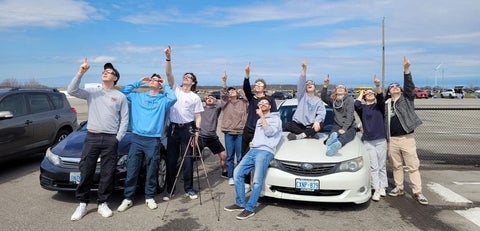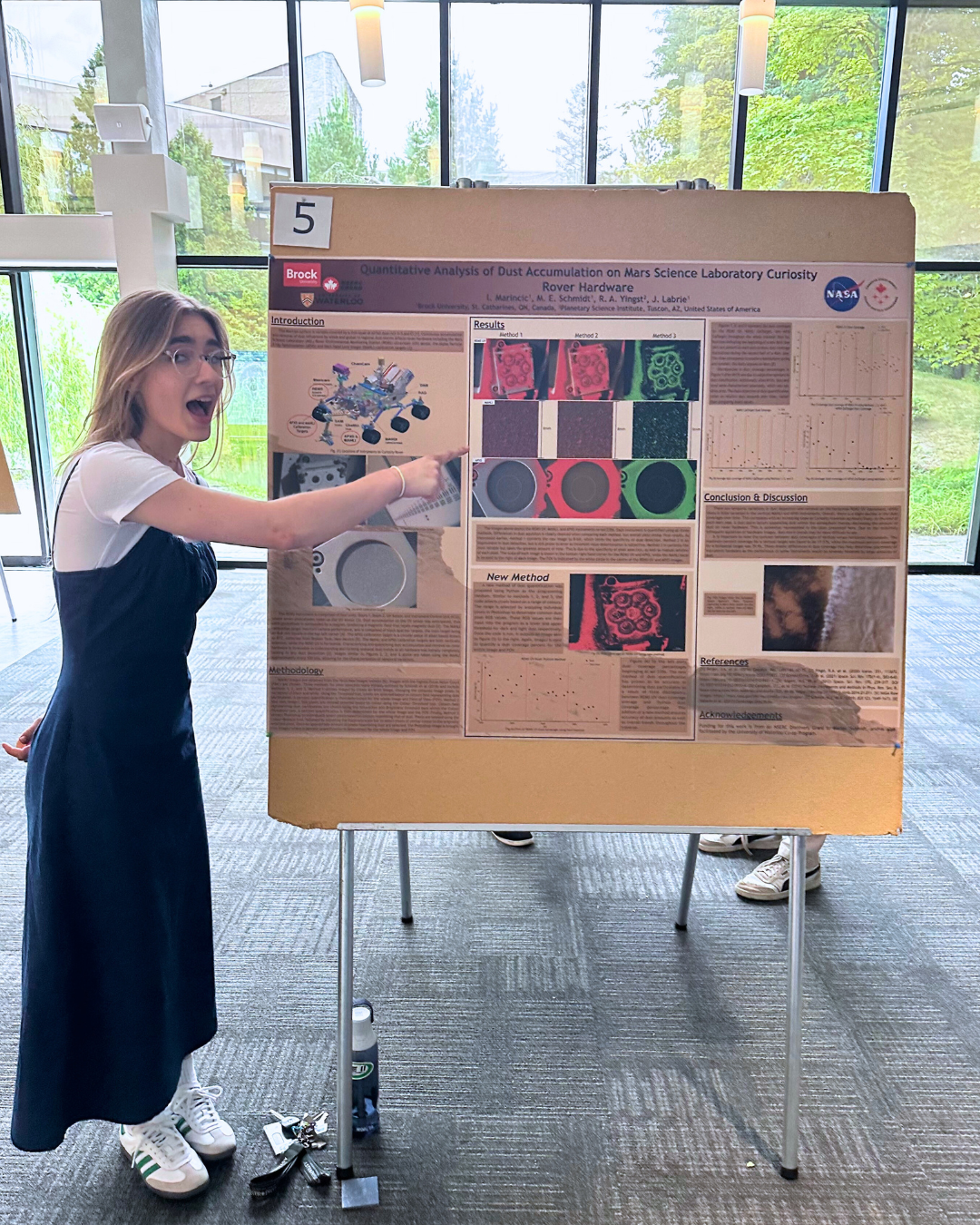
Graduating with a one-of-a-kind degree
A Faculty of Science grad is the first to complete Waterloo’s Life Physics program with a specialization in Biophysics and a double minor in Astrophysics and Earth Sciences
By Sarah Fullerton
Digital Communications Specialist
When the Faculty of Science’s class of 2025 crosses the stage this June, you will see Isabelle Marincic graduate as the first University of Waterloo student to complete Honours Life Physics with a specialization in Biophysics and a double minor in Astrophysics and Earth Sciences.
Originally from Beamsville, Ontario, Marincic chose Waterloo after attending the March Open House in her final year of high school.
“I was on campus that Saturday for the entire day and I loved it so much,” she says. “It was when Donna Strickland won her Nobel Prize, and I was so inspired.”
Starting her first two years at Waterloo as a Physics and Astronomy student, Marincic transferred to the Honours Life Physics program (now known as Biological Medical Physics) to tailor her degree to her passions for biology and earth sciences in hopes of pursuing astrobiology.

Her passion for astrobiology led her to numerous research roles through Waterloo’s co-op program. She secured her first placement at Single Quantum Systems, tracking space debris in low Earth orbit and piquing her interest in planetary science.
After gaining research experience, she secured a research role at Brock University with Professor Mariek Schmidt, analyzing Martian rock dust for the Mars Curiosity Rover. The research was funded by the Canadian Space Agency and NASA, and Marincic was on the official Curiosity Rover and Preserverance Rover teams.
“That was my first experience working on a research team,” Marincic says. “We were analyzing Martian dust to help predict weather patterns and decide where the Rover should go next.”
In her final co-op placement, she worked in the Faculty of Environment under Professor Maria Strack, conducting fieldwork on wetland gas emissions. But it was her time at Brock University that sealed her interest in planetary science.
This opportunity led her to York University, where she has just started a master’s in Earth and Space Science, studying planetary science and astrobiology under Professor John Moores. They first connected when Marincic cold-emailed him to speak at the 2023 Canadian Undergraduate Physics Conference (CUPC), which she co-organized as vice-chair. He was unable to attend the conference, but their paths unexpectedly crossed again when they were both authors on a collaborative research paper that included her work at Brock. This prompted her to reach out again to inquire about a master’s research opportunity.
“Cold emailing people can feel intimidating, but it changed everything for me,” she says. “That’s how I got the research role at Brock, too. My top advice to any incoming student would be to put yourself out there and reach out to people who inspire you, you never know where it may lead you.”
As Marincic graduates with a unique transcript this June, she will continue the pursuit to answer big questions about Earth and our Universe with her sights set on pursuing research as a career.
“I’m just so grateful,” she says. “For my professors, research teams, and especially my parents, who supported me in doing what I love.”